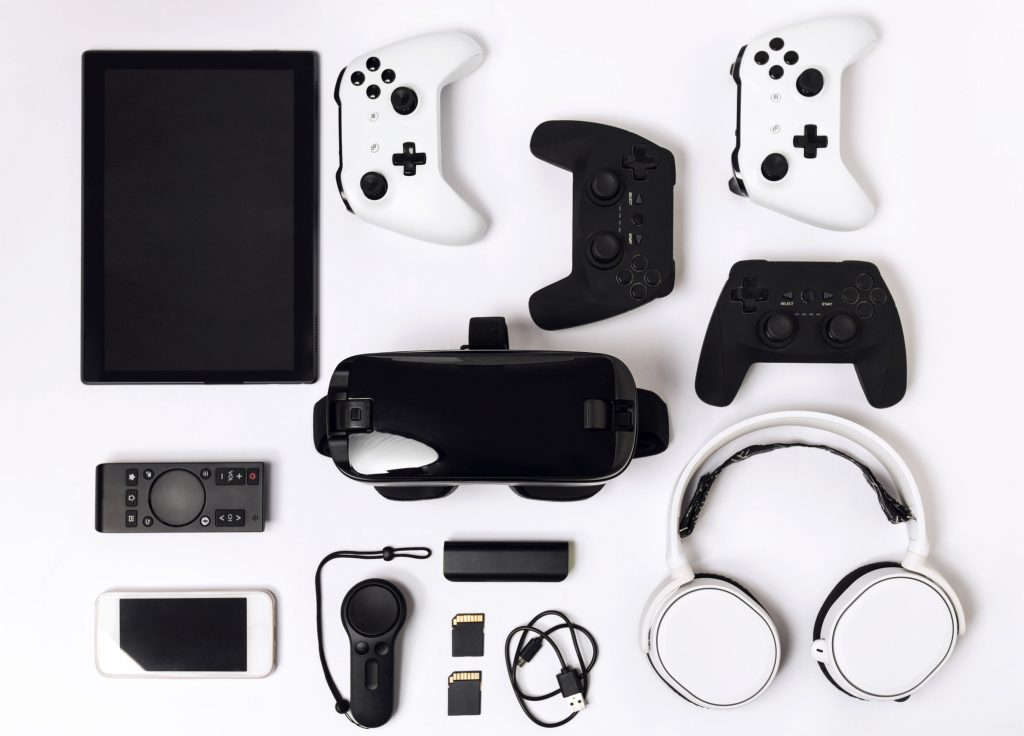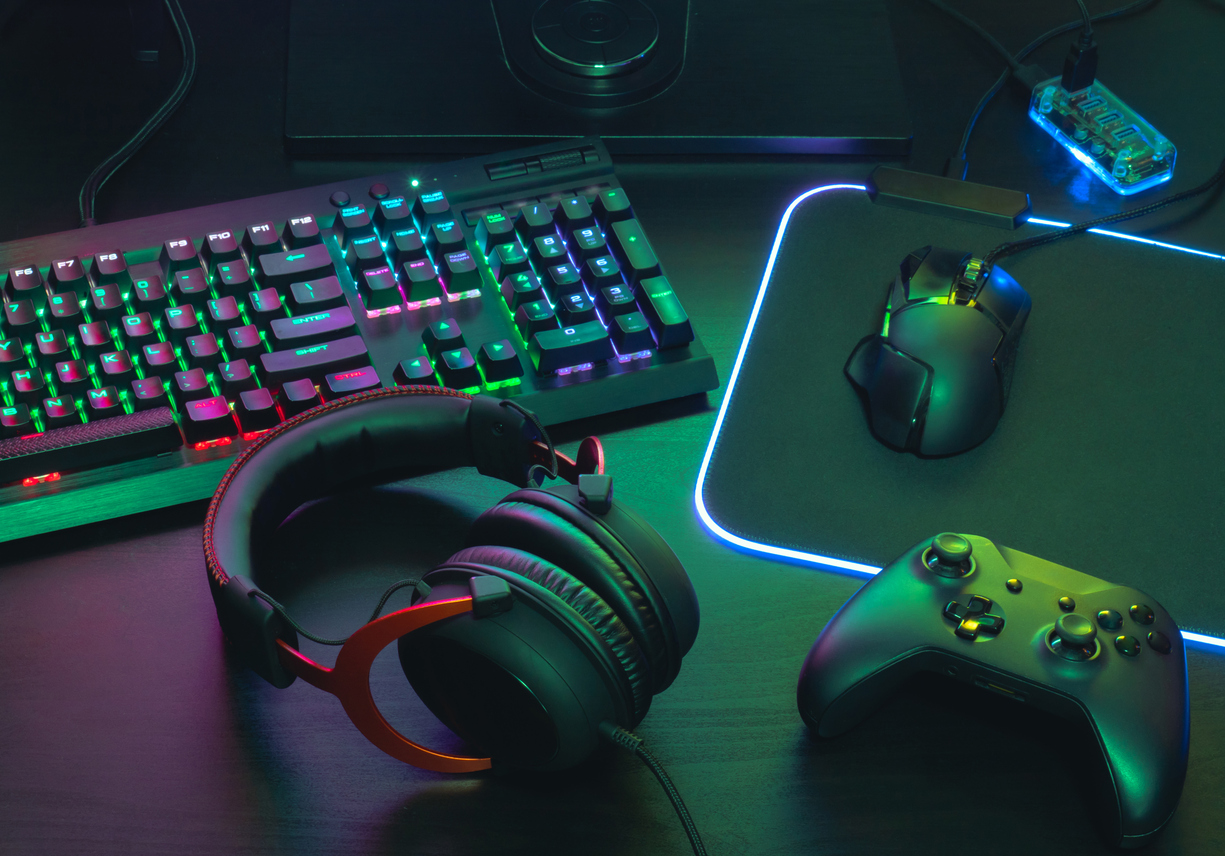Finding the right gaming gear can feel like navigating a maze. With endless brands, features, and technical jargon, how do you know where to start? On one side, you don’t want to overspend on a setup that doesn’t meet your needs. On the other, you don’t want to skimp and end up with lackluster equipment that holds you back.
This guide is here to help you game smarter. Whether you’re a casual gamer or a competitive esports enthusiast, we’ll walk you through where to find great gaming gear, what pitfalls to avoid, and how to stretch every dollar to maximize performance.
Why Smart Gaming Gear Choices Matter
Gaming is more than a pastime; for many, it’s a passion or even a profession. Investing in the right gear has tangible benefits, from enhancing your overall gaming experience to giving you an edge in competitive settings.
High-quality gear can improve accuracy, ergonomics, and even reaction times, while poorly chosen products can lead to buyer’s remorse, discomfort during play, or gear that simply doesn’t meet your requirements. Let’s make sure you gear up the right way.
Factors to Consider Before Buying

Before you start adding items to your cart, it’s important to consider a few key factors. These will help you identify which items are worth your hard-earned money.
1. Understand Your Gaming Needs
Think about what type of gamer you are. Do you spend hours exploring open-world RPGs or focus on fast-paced competitive titles like Fortnite or Call of Duty?
- Casual gamers might prefer a mid-tier headset and a budget-friendly mouse.
- Competitive gamers, on the other hand, may prioritize high refresh-rate monitors, mechanical keyboards with fast switches, and precise gaming mice.
2. Compatibility with Existing Hardware
Your gaming rig is only as good as its weakest link, so make sure your new gear works seamlessly with your current setup. For instance, if you’re buying a monitor, confirm that your graphics card can handle its resolution and refresh rate.
Additionally, check compatibility for accessories like controllers and headsets. Some devices work better with specific platforms, such as Xbox, PlayStation, or PC.
3. Comfort and Durability
Gaming sessions can last for hours, so comfort and reliability are non-negotiable. Pay attention to factors like ergonomics for gaming chairs, headset padding, and the longevity of your keyboard and mouse clicks.
Would you rather replace your gear every year or invest in durable products that can last for years? Spending more upfront often saves you money in the long haul.
Where to Look for Gaming Gear

Finding the right retailer is just as important as choosing the right gear. Here are some trusted sources to kickstart your shopping.
1. Official Brand Websites
Big names like Razer, Logitech, and SteelSeries have official stores with their full product lineups. Shopping directly from the brand ensures product authenticity and gives you access to warranties and exclusive deals.
2. Online Marketplaces
Amazon and Best Buy are great places to search for deals and discounts, thanks to their extensive product selections and customer reviews. Don’t forget to look at well-known gaming retailers like Newegg for detailed specs and bundles.
One pro tip? Take advantage of major sales events like Black Friday, Cyber Monday, or Prime Day for significant discounts on top-tier gear.
3. Specialty Gaming Stores
Local and online specialty stores often have staff and forums where you can find advice tailored to gamers. These places may also carry boutique or niche gaming accessories you won’t find elsewhere.
Check Reviews Before You Buy

If there’s one step you should never skip, it’s checking product reviews. Here’s how reviews can save you from making costly mistakes.
- User Reviews: Websites like Amazon and retail platforms host thousands of customer reviews and ratings that paint a real-world picture of product performance.
- Expert Opinions: Research trusted tech reviewers on YouTube or blogs. For example, outlets like Linus Tech Tips and Tom’s Hardware often provide in-depth product comparisons.
- Specialized Gaming Communities: Social platforms like Reddit (check subs like r/pcgaming) feature honest recommendations from fellow gamers who can share first-hand experiences.
By taking an extra 10 minutes to research, you avoid wasting money on poorly made products.
What to Avoid When Shopping for Gaming Gear
It’s easy to fall for flashy designs and marketing gimmicks, but here are a few pitfalls you should avoid.
1. Overpaying for Features You Don’t Need
That RGB lighting on a mouse might look cool, but does it justify an extra $50? Consider which features actually impact performance versus those made for aesthetics.
2. Cheap Imitations
While budget-friendly brands can offer great value, avoid products that seem suspiciously cheap compared to their competitors. Poor build quality and lack of warranties can cost you more.
3. Following Trends Blindly
Just because a certain product is “hyped” doesn’t mean it’s right for you. Stay true to your requirements and preferences, rather than chasing trends.
What Gaming Gear Should You Prioritize?

Not everything in a gaming setup is of equal importance. Here’s how to rank your upgrades by impact.
1. Gaming Headset
A good gaming headset offers crystal-clear audio to catch even the faintest in-game cues while keeping you comfortable for long hours of wear. Look for features like noise isolation, surround sound, and a quality mic.
2. Monitor
Your monitor can make or break your experience. Competitive gamers should prioritize high refresh rates (144Hz or above), while casual gamers might prefer larger displays with vibrant colors for immersive narratives.
3. Gaming Chair
Ergonomic gaming chairs can prevent back pain, a common issue for gamers during long sessions. Look for adjustable armrests, lumbar support, and comfortable padding.
4. Mechanical Keyboard
A responsive keyboard can significantly improve your gameplay, especially in fast-action games. Choose between linear, tactile, or clicky switches based on your typing preference.
5. Precision Gaming Mouse
Look for features like adjustable DPI, ergonomic design, and extra programmable buttons for an edge in gameplay.
How to Maintain Your Gaming Gear

Even the best gaming gear needs care to stay in top condition. Start with these maintenance tips.
- Clean Regularly: Dust your keyboard, mouse, and monitor for longer-lasting performance.
- Store Equipment Properly: Use protective cases for gear like headsets and mice when not in use.
- Update Firmware: Many gaming accessories have firmware updates to enhance compatibility or add features.
Elevate Your Gaming Experience Today
Shopping for gaming gear doesn’t have to be overwhelming. By starting with a clear understanding of your needs and doing your homework through reviews and research, you can create the ultimate gaming setup that suits your budget.
Remember, gaming is about enjoyment. The right tools make the experience all the more satisfying, whether you’re chasing high scores or simply exploring stunning virtual worlds.
Game smarter, shop smarter, and most importantly, game on!



